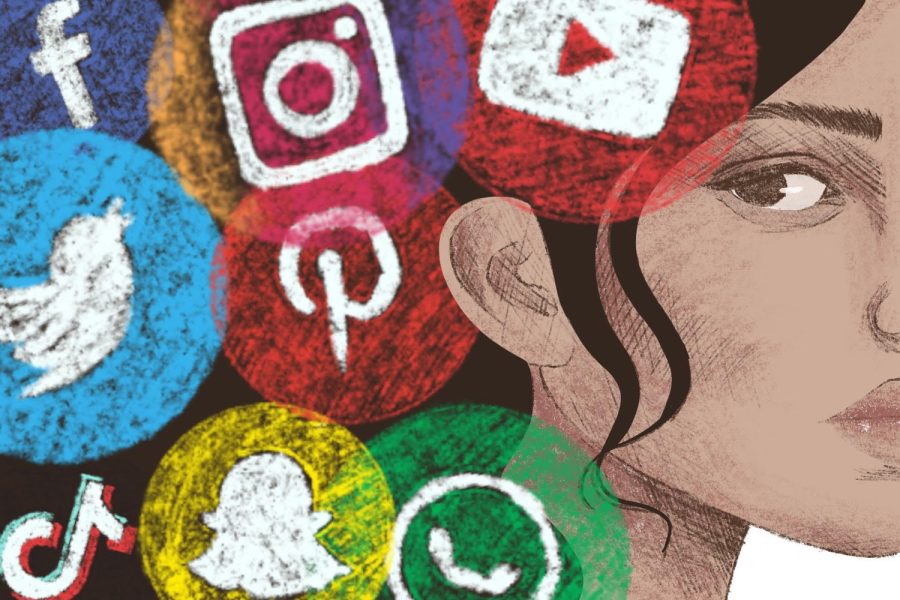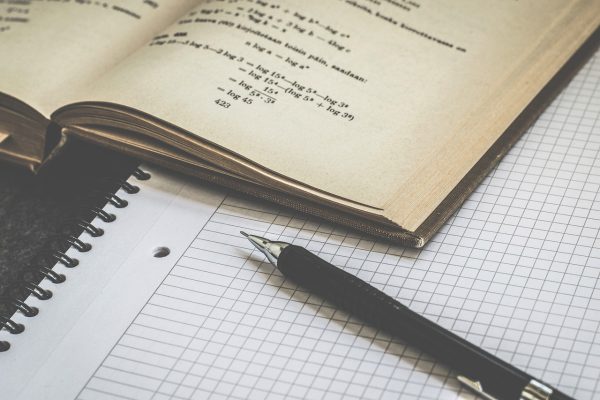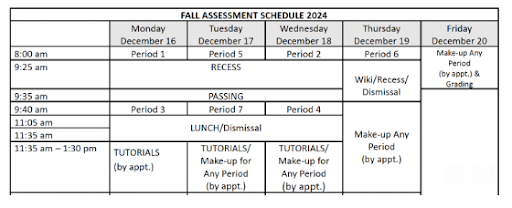Social media: an overly influential presence
Despite social media’s many positive effects on society, as a whole, it negatively impacts how teenagers live their lives and view life itself. Through the many unrealistic moments posted on social media, users build thick facades, sugarcoating the reality that we all inevitably have to face. We all need to set limits for ourselves and acknowledge when too much time on social media starts to affect us and our actions.
Although social media has many downsides, it does have quite a few bright sides as well. For example, this was exhibited through the quick response to the Haiti earthquake back in 2021. For this unfortunate event, Twitter, one of the leading social media platforms, was the hot spot to find updates as well as different ways to help residents in the affected areas.
Entire movements were inspired by hashtags on social media, such as the Black Lives Matter movement, sometimes abbreviated as BLM. This movement furthered strides toward equality and it informed many people about the unjust treatment of others due to their race or ethnicity. It is frustrating and upsetting that we needed a movement as large as this to build some momentum in the human equality movement. This movement gained momentum after the death of George Floyd, where he was violently incapacitated by a white officer, which was greatly fueled by racism, as well as white privilege. In this situation, people were able to voice their thoughts and feelings, all thanks to social media. However, despite these benefits, social media has gained too much control over our lives in the long run.
Through social media, we all hide behind a username. Unless we add our own personal information and profile picture to be shown publicly, we are able to use social media without anyone knowing who we actually are. In that sense, it is a bit unsettling and weird. However, anonymity may led to a more serious matter: cyberbullying. Ever since the 2000s, cyberbullying has steadily increased. We are all probably aware of this issue; however, we may not be aware of the different ways cyberbullying could take place. Unknowingly uploading a picture of someone may seem to be “all in fun,” not meant to affect anyone. However, to the person being uploaded, it may have a negative, lasting effect on them. Social media breaks down boundaries between individuals, which is usually difficult to do face-to-face; however, in some instances, people forget to honor boundaries that should always be respected, such as one’s privacy.
Another downside to social media that many of us have experienced is imposter syndrome. After witnessing those around you succeed in their own ways, you may feel like your actions are not enough and you may feel like everyone is much farther along than you. Imagine yourself viewing the latest post from your favorite social media influencers, or just your friends having the time of their lives while you’re sitting at home doing, well, nothing. Some of us may feel like we aren’t living our lives to the fullest or that we aren’t doing enough. This affects many people, sometimes to the point where it sends them into a downward spiral of anxiety, depression, and feeling all alone. All in all, imposter syndrome is largely caused by social media, which sends people to stray into having negative thoughts, feelings, and just feeling down due to unrealistic expectations set by what they view on social media.
Finally, teens spend a considerable amount of time with their eyes glued to the screen, rather than spending this time doing something physical, like spending time with friends. I, for one, admittedly am guilty of this. After asking some of my classmates for their average daily screen time, I found out that their overall average phone screen time is five to six hours a day. A few participants have also reported to have a daily average of eight or more hours of screen time, only on their phones. This does not even include the time they spend on their computers completing assignments.
Here are a couple of my suggestions to log less screen time on social media and to use social media more positively in your life. First, you could try to take up some extracurriculars related to your interests. Here at Waipahu High School, we have clubs such as LIFE Club and Girl Up, which tackle issues we face in society today. Through clubs like these, you’ll more than likely come across a situation where you’ll learn to effectively use social media to relate to your activities. Another suggestion is to take up a sport or new hobby. Through social media, you can see many tutorials on activities that you may have never heard of before. Maybe you could also learn how to cook something new.
Social media has many benefits; however, we shouldn’t let social media affect how we live our lives and how we think. Social media was made to support us, our interests, and our ability to communicate with people, virtually from anywhere in the world. We should not let it bring us down.
Jarvia Crecia Agbayani is a 10th grader in the Academy of Health & Sciences.






